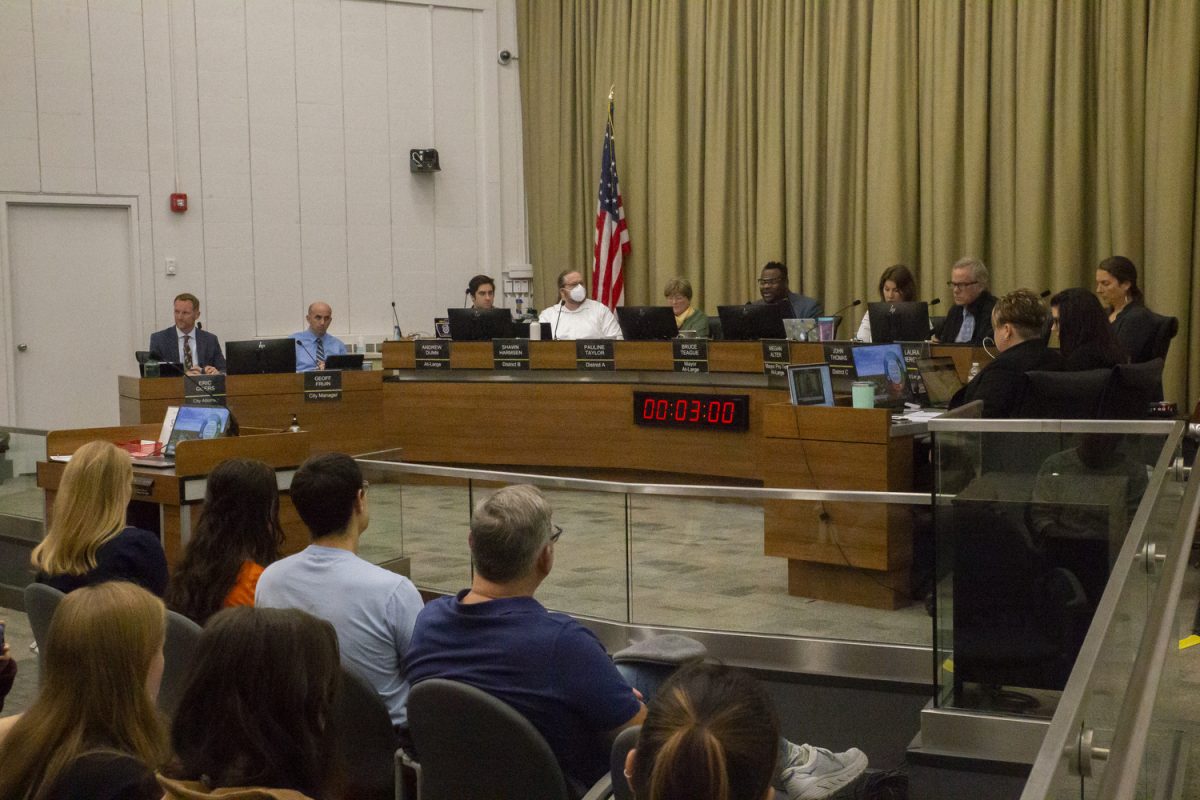The City of Iowa City will start a new program on Jan. 1, 2024, that will award a $1,800 grant to builders who meet certain energy efficiency criteria when they construct residential properties.
The city developed this program as a way to incentivize energy efficiency to builders and thus help reach its climate action goals.
According to a memo in the Nov. 9 city council information packet, a third-party certified inspector will look at the homes after they are built and determine where they fall on an energy efficiency rating scale known as the Home Energy Rating System, or HERS.
HERS is a nationally used index that places a home’s energy efficiency rating on a scale of zero to 150, with 100 being the reference for a typical home constructed in 2006 when the HERS index was created. The lower the HERS score, the more energy-efficient a home is.
The grant will be awarded to builders who have built their properties to achieve a rating of 52 or lower. A home with this score is about 20 percent more energy efficient than a home built to the standards of the current Iowa energy code, the memo states.
Sarah Gardner, the city’s climate action coordinator, said the $1,800 grant amount was decided upon because the cost of a HERS rating is about $600, so this grant would triple what it costs builders to pay for a rating.
Another incentive within this program is the house that receives the lowest score in the program’s first year of operation, which will begin on Jan. 1, will receive special recognition. Gardner said it has not yet been determined exactly what this recognition will be, but it will most likely be some sort of plaque for the builder to display or to give to the homeowner.
The memo states city staff have been talking with the local Home Builders Association, individual builders and realtors, community home energy raters, and building inspection staff since last year to determine how the program should run to benefit all involved.
Gardner said having an energy-efficient home may be more expensive to buy at first, but in the long run, it saves homeowners money.
For example, energy-efficient windows can ensure less heating and cooling leaks out of a home, driving down household bills as well as emissions through the conservation of energy.
There are few programs like this geared toward residential properties despite those buildings putting off the most emissions compared to industrial and commercial properties, so the city wanted to create this program to address this gap, Gardner said. Residential properties were the highest producers of harmful emissions last year, she said.
Jennie Wunderlich, president of local housing fixture distribution company PSC Distribution, said she appreciates how the city has involved and gathered the opinions of builders and remodelers throughout the program development process to best tailor it to their wants and needs.
“I think builders are receptive to new ideas, and there’s a lot of builders who actually would love to build [energy] efficient homes,” Wunderlich said. “It’s very expensive to build efficiently when they don’t necessarily have the resources or the tools … Also, people like options, and options with incentives are great.”
GT Karr, the owner of Iowa City-based Sueppel’s Building and Remodeling, said his company is the general contractor of the Iowa City schools project where local high school students are building an affordable housing unit on Ronalds Street. He said homes will use a HERS rating, and he anticipates it will receive a score of around 26.
Karr said he hopes the home the students are building will serve as an example of how easy it can be to build a more energy-efficient home.
RELATED: Iowa City’s Public Works facility adds new solar array expected to last over 20 years
“If we’re able to do in a first-year program that we’re resurrecting with 17, 18, and 16-year-old kids, this is something that a lot of builders can do, and probably are,” Karr said. “They’re just not getting the credit because we’re not doing the testing.”
Gardner said the funding for the first year of the program will come from the city’s emergency fund levy. The memo states $70,000 will be allocated from the fund as an average of 30 to 40 residential building permits are issued each year, and this figure accounts for the majority of those homes receiving the necessary HERS score.
As the program progresses, city staff will assess the success of the program and see if any changes or adjustments need to be made as well as determine what the future funding source of the program will be, Gardner said.



